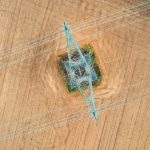Unlock the Editor’s Digest for free
Roula Khalaf, Editor of the FT, selects her favourite stories in this weekly newsletter.
Chinese electric-car maker BYD’s expected expansion into Pakistan has raised hopes in the country that the Warren Buffett-backed company can help jump-start exports in the automotive manufacturing sector.
Pakistan’s biggest private electricity producer Hub Power (Hubco) said last month that its subsidiary Mega Motor was entering a partnership with the Tesla rival to set up the country’s first electric vehicle assembly plant by 2026.
BYD’s Pakistan plan would mark the company’s first venture into south Asia after being blocked in India by Prime Minister Narendra Modi’s government, which has restricted Chinese investment.
Hubco’s chief executive Kamran Kamal said in an interview with the Financial Times that the ultimate goal was for Pakistan to start exporting vehicles from the plant near Karachi’s Port Qasim.
“We have big ambitions to be the leading carmaker in this country by the end of the decade,” said Kamal. “For any industry in Pakistan to be competitive, they should be focused on the export market.”
Pakistan’s finance minister Muhammad Aurangzeb said the government was encouraging BYD to export to markets in Africa and south Asia, including Bangladesh and Sri Lanka. Trade between India and Pakistan has been reduced since 2019 after a security crisis between the two countries.
“We want that Pakistan becomes an export hub, period,” Aurangzeb said in a separate interview with the FT. “Korean brands are here, the Japanese brands have been here . . . but the reality is we haven’t been exporting.”
BYD said details of its Pakistan plans had yet to be formally announced and declined to comment further.
The company’s expansion into south Asia comes as it is also establishing factories in Turkey, Hungary, Thailand and Brazil. BYD has also been scouting locations for a new factory in Mexico.
The carmaker is expanding its manufacturing footprint beyond China as countries impose increasing tariffs on Chinese exports, including on EVs, solar panels and wind turbines.
Tu Le, founder of consultancy Sino Auto Insights, said the aggressive international expansion plans would help BYD export to fast-growing markets despite tariffs in the US and Europe.
But he warned that BYD should not expect the same “unfettered growth” the company has enjoyed in China as it learns to manage factories in different countries.
“Chinese companies are used to having a lot of control. What they are going to find is that due to labour laws, different work ethics, different cultures, they’re going to have a lot less control than they normally would,” he said.
Hubco is a joint venture partner for a number of Chinese power projects established under the China-Pakistan Economic Corridor, a $60bn infrastructure network that is part of Beijing’s Belt and Road Initiative.
The company has no prior experience manufacturing vehicles but it aims to use its extensive power generation network to set up EV charging infrastructure throughout the country of 240mn people, Kamal said.
The exact size of the investment and the types of models that will be assembled in the Karachi plant “are being discussed”, he said.
Hubco said it expected to sell 100,000 BYD plug-in hybrid and fully electric cars in Pakistan a year by 2030, representing about a quarter of total cars sold in Pakistan, according to the company’s estimates.
Read the full article here



